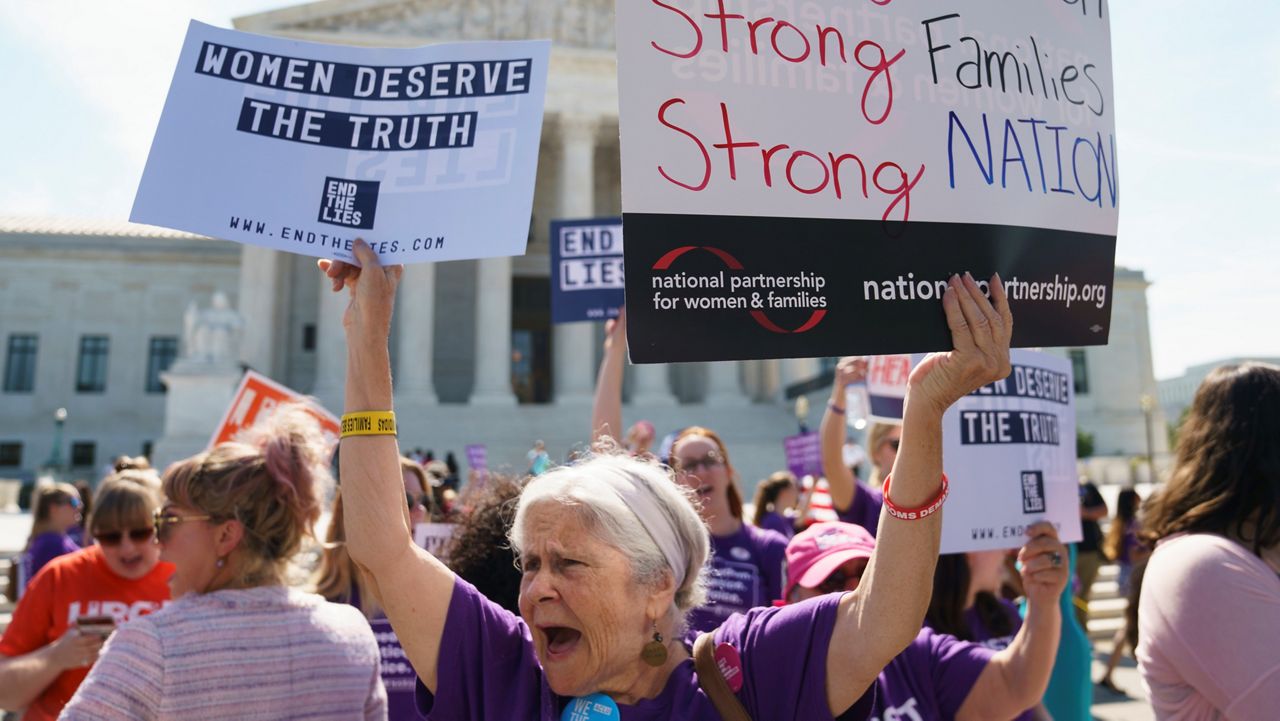LOS ANGELES (CNS) — A proposed law that would prohibit pregnancy service centers from misleading people about reproductive health services, including abortion, with tactics such as false advertising is expected to come before the Los Angeles City Council soon after it was moved along by a council committee Tuesday.
The ordinance, proposed by City Attorney Mike Feuer, was forwarded to the council as communication from Councilman John Lee, chair of the Arts, Parks, Health, Education and Neighborhoods Committee.
Councilman Mike Bonin, the committee’s other member, was absent, so the committee could not take a formal vote on the item. But Lee sought to put the item up for council consideration given the urgency of the proposal.
The proposed ordinance, which Feuer announced in early August, would take effect immediately if passed. It would be enforced by Feuer’s office, with fines of $10,000 per violation. It would also allow victims to sue for compensation if they believe they have been misled.
“If someone goes to a center thinking that those services are offered, and they’re not, they’ve lost valuable time in this critical moment,” Feuer said at the committee meeting. “If someone goes to one of these centers and is pressured into changing their mind, altering their decision-making about this through inaccurate information, precious time is lost. When it comes to reproductive health, time matters. And truth matters. Women’s rights and health cannot be on the line because of misleading information.”
Feuer’s proposal is a response to the Supreme Court overturning Roe v. Wade in June, striking down the federal constitutional right to an abortion that had been in place for nearly five decades. He claimed that some so-called crisis pregnancy centers falsely advertise to women seeking abortions, specifically those who are low income and in a “very stressful physical and emotional moment in their lives.”
In June, California Attorney General Rob Bonta issued a consumer alert warning of the “limited and potentially misleading nature of the services provided by crisis pregnancy centers.”
“Crisis pregnancy centers often work to attract pregnant Californians into their facilities through vague claims about the information and services they offer,” Bonta said in June. “While crisis pregnancy centers may claim to offer comprehensive reproductive health care services, their mission is to discourage people from accessing abortion care.”
There are at least five crisis pregnancy centers in Los Angeles, Feuer said at a news briefing in August.
The centers may not actually provide abortion resources or referrals, Feuer said. They might not have the proper testing or diagnostics, or have unqualified staff. They could pressure women not to terminate their pregnancies. Ultimately, they could prevent women from receiving life-saving medical care, he said.
“These centers are entitled to express their opinions,” Feuer said. “But they are not entitled to mislead women. They are not entitled to misrepresent the services they provide, putting women who come to those centers into severe consequences.”
Around 6,200 people are now projected to travel to Los Angeles County each year for abortion care, according to a UCLA study published in June. The study was based on the likelihood that 26 states would ban nearly all abortions after the court’s decision.
The matter has previously been discussed by the Los Angeles City Council, which received reports from the chief legislative analyst and city attorney in 2016 on the deceptive practices of crisis pregnancy centers and recommendations on reducing deceptive advertising, following a motion by Nury Martinez, who is now council president.
Martinez’s 2016 motion addressed pregnancy centers that steer clients away from abortion. She described such centers at the time as “often deceptive” and “detrimental to women when they are most vulnerable.”
Feuer declined to say whether his proposed law — which bears some similarities to a San Francisco law passed in 2011 that prohibits false advertising from limited-services pregnancy centers — was preemptive.
“I can say that I want our office and women here in Los Angeles to have every tool possible to combat these misrepresentations, to deter them from happening in the first place and assure that women don’t suffer adverse consequences because of it,” he said.



